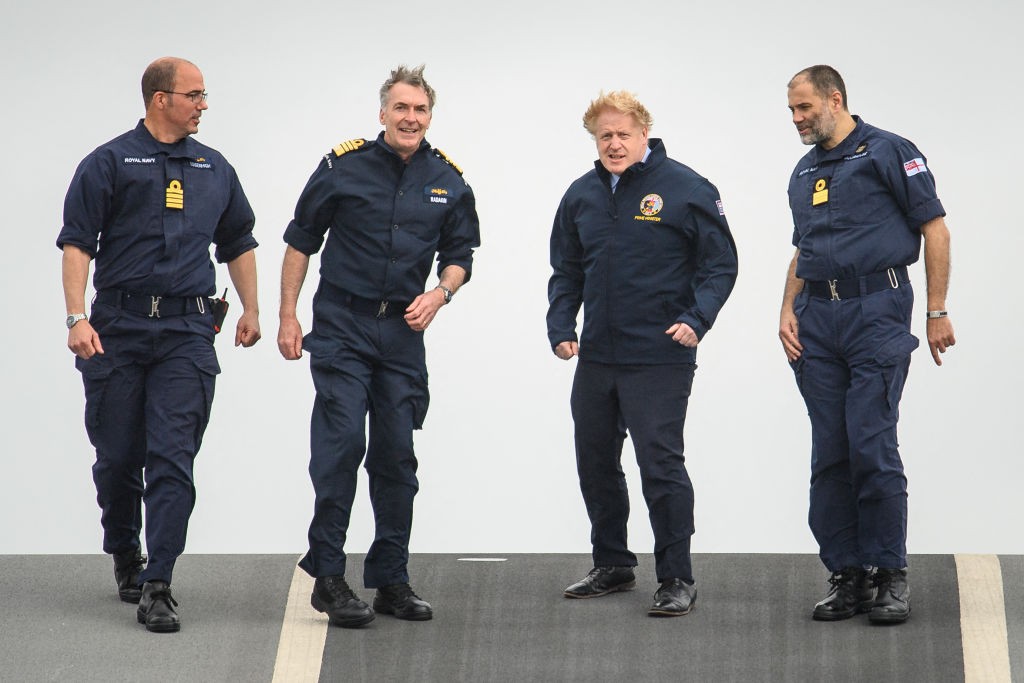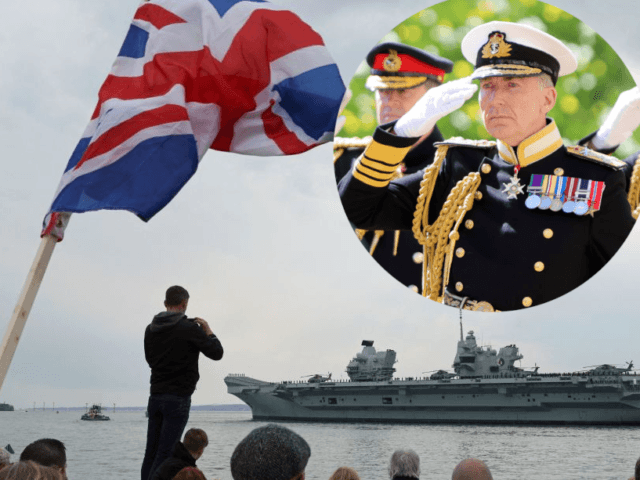The UK government has selected an admiral to be the next head of the armed forces, an unusual move for a role normally filled by army or air force officers, indicating the depth of intent behind the country’s military-political pivot to the Indo-Pacific post-Brexit.
Admiral Sir Tony Radakin KCB ADC was appointed the new Chief of the Defence Staff, the UK government announced on Thursday morning, ending a months-long race to decide who would lead Britain’s armed forces in the coming years. There is no set term for the post, but chiefs can generally expect to serve for two or three years before retiring. Incumbent General Sir Nick Carter has been at the helm for over three years.
That an admiral has been selected sends a very definite signal about the UK’s defence priorities. In the era of Britain’s involvement in Afghanistan — a landlocked country — and Iraq, Army generals and Royal Air Force Marshalls have dominated the role. Indeed, while there have been 12 Chiefs of the Defence Staff since 1990, until now only one admiral has held the post in that time.
British broadsheet the Daily Telegraph, which is generally considered the closest establishment newspaper to the UK’s Conservative government, reports that Admiral Radakin saw off stiff competition, particularly from the British Army’s General Sir Patrick Sanders. The paper notes that even the Chief of the General Staff — the head of the British Army — General Sir Mark Carleton-Smith, a former special forces officer and personal friend of the prime minister perhaps best known to the public today for telling soldiers off for speaking to English Defence League founder Tommy Robinson, was also a contender for the post.
Speaking of the selection, Prime Minister Boris Johnson cited, in particular, Sir Tony’s involvement in getting Britain’s two new aircraft carriers operational. One of the pair is presently mid-way through a significant “Global Britain” battle group deployment to the Pacific, the successful execution of which The Telegraph also notes to have counted in Radakin’s favour, alongside his involvement in the recently agreed UK-U.S.-Australia submarine pact.
Sir Tony said of the post: “The Government has given us clarity and additional resource to counter the threats we face as a nation. It is now time to get on and deliver… The Prime Minister and Secretary of State have demanded reform and we must seize the opportunity the Government has given us and ensure we are a global force delivering for Global Britain.”
The UK has undergone a significant shift in military focus of late, strengthening alliances in the Indo-Pacific in a series of moves that have been universally interpreted as contributing to the West’s growing challenge to expansionist China. The deployment of the UK’s new carrier strike group involves ships and aircraft from regional allies including Brunei, Malaysia, Singapore, Japan, South Korea, the United States, Australia, New Zealand, and Canada.
In all, the Royal Navy has said, the deployment will see British warships visit and exercise with over 40 nations.

(L-R) Captain Angus Essenhigh, First Sea Lord Admiral Tony Radakin, British Prime Minister Boris Johnson and Commodore Steve Moorhouse face the strong winds as they walk on the flight deck during a visit to HMS Queen Elizabeth aircraft carrier in Portsmouth, southwest England prior to its departure for Asia in its first operational deployment on May 21, 2021 (Photo by Leon Neal / POOL / AFP) (Photo by LEON NEAL/POOL/AFP via Getty Images)

COMMENTS
Please let us know if you're having issues with commenting.